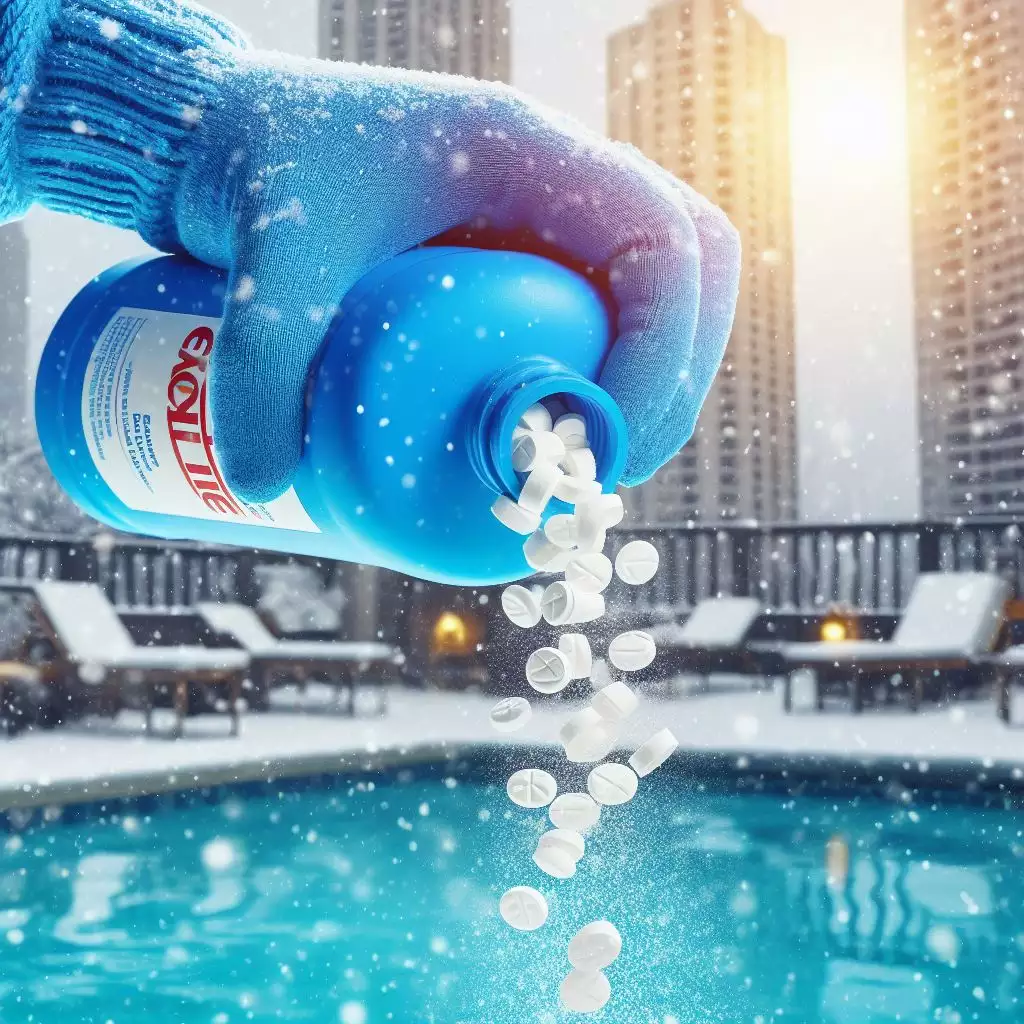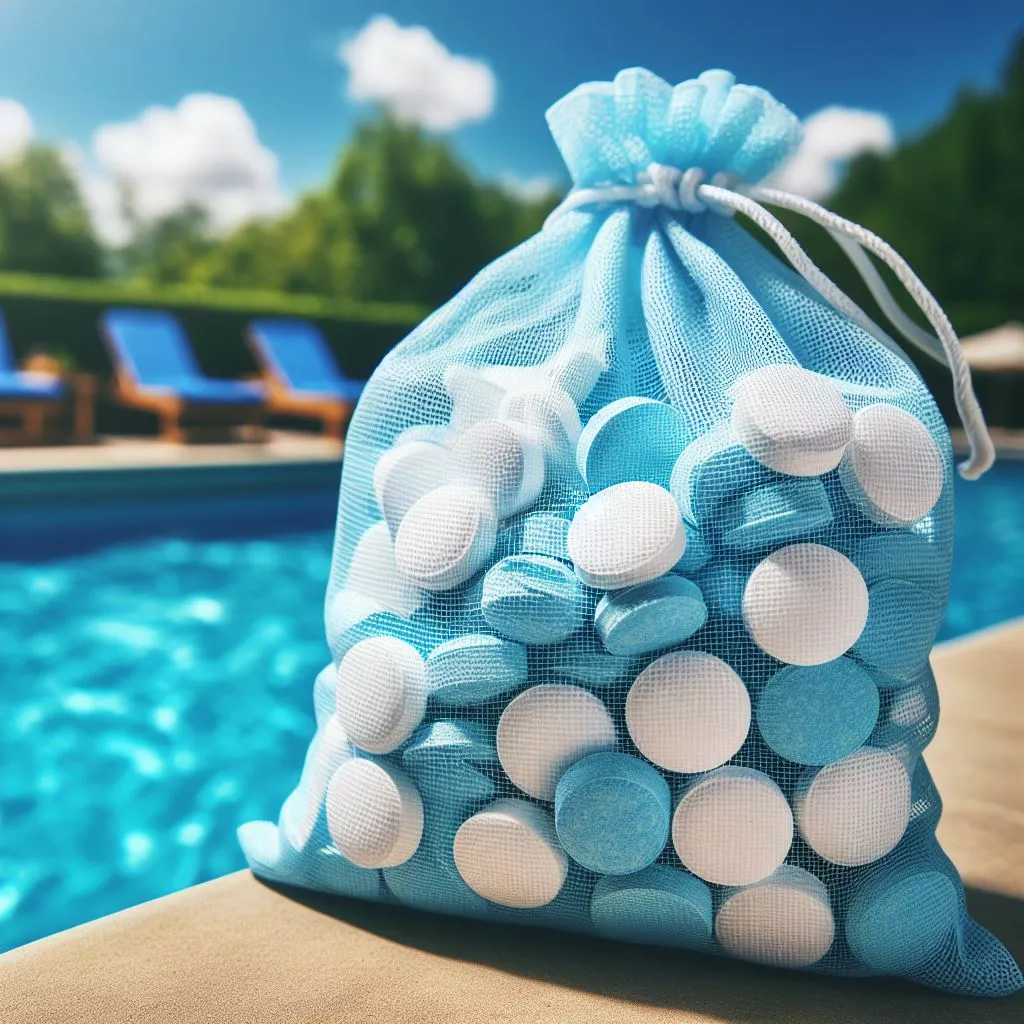In the sparkling blue expanse of a well-maintained swimming pool, the invigorating scent of chlorine often lingers, a testament to its vital role in ensuring water clarity and hygiene. However, the aftermath of this sanitation process—the handling and disposal of chlorine tablet residues—is an often overlooked aspect that necessitates utmost attention for both safety and environmental reasons. As responsible pool owners and operators, it’s crucial to adopt comprehensive strategies for managing these residues, ensuring a harmonious coexistence between our aquatic leisure and the planet’s wellbeing.

I. Understanding Chlorine Tablet Residues: The Basics
First and foremost, let’s delve into what precisely constitutes chlorine tablet residues. Chlorine tablets, widely used in pool maintenance, slowly dissolve in water, releasing chlorine gas that disinfects the water by killing bacteria, viruses, and algae. Over time, as these tablets dissolve, insoluble byproducts such as calcium hypochlorite (a common active ingredient) and other mineral salts accumulate at the bottom of the pool or in filtration systems. These residues, if not properly managed, can pose risks to human health and the environment.
Key Points:
Chlorine tablets release chlorine gas for disinfection.
Insoluble byproducts accumulate as residues over time.
Calcium hypochlorite and mineral salts are common residues.
II. The Importance of Safe Handling: Protecting Humans and Pets
The direct handling of chlorine tablet residues without proper precautions can lead to skin irritation, respiratory problems, and even more severe health issues in sensitive individuals. Children and pets, who may be more prone to accidental exposure, are particularly vulnerable.
Actionable Steps:
Always wear protective gloves, goggles, and clothing when handling residues.
Keep residues out of reach of children and pets.
Immediately rinse off with clean water if accidental contact occurs.
Store unused tablets securely in a cool, dry place, away from direct sunlight.
III. Environmentally Conscious Disposal: Reducing Impact
Improper disposal of chlorine tablet residues, such as flushing them down drains or discarding them in landfills, can harm aquatic ecosystems and contribute to soil contamination. Chlorine-laden waste can disrupt the delicate balance of microorganisms in water bodies, affecting wildlife and potentially infiltrating groundwater supplies.
Eco-Friendly Solutions:
Consult local authorities for guidelines on hazardous waste disposal.
Many communities offer special pick-up services for hazardous materials, including pool chemicals.
Neutralize residues by mixing with appropriate amounts of acid (under expert supervision) before disposal, minimizing environmental impact.
Consider recycling or repurposing filters and other equipment that accumulate residues.

IV. Maximizing Efficiency: Reducing Residue Generation
Preventing the excessive accumulation of residues in the first place is another crucial aspect of management. This involves optimizing pool chlorine usage, minimizing waste, and maintaining a balanced pool environment.
Effective Strategies:
Use automated dosing systems to ensure precise and efficient chlorine delivery.
Regularly backwash and clean filters to prevent residue build-up.
Test pool water regularly to maintain optimal chlorine levels, avoiding overdosing.
Implement a comprehensive pool maintenance schedule, including brushing pool walls and vacuuming the floor.
V. Educating the Community: Raising Awareness
Raising awareness among pool users and the broader community about the importance of safe and environmentally responsible handling of chlorine tablet residues is vital. By sharing knowledge and best practices, we can foster a culture of stewardship that benefits all.
Outreach Initiatives:
Host workshops and seminars on pool chemistry and safe residue management.
Collaborate with local schools and community groups to educate the younger generation.
Utilize social media and online platforms to disseminate information and encourage dialogue.
Partner with pool supply stores and service providers to promote eco-friendly products and services.
Conclusion
The management of chlorine tablet residues after pool use is not just a technical challenge but a moral imperative. It requires a concerted effort from pool owners, operators, manufacturers, and the community at large to ensure the safety of our waterways, protect public health, and preserve the environment for future generations. By adopting proactive strategies, embracing eco-friendly practices, and fostering a culture of education and awareness, we can all contribute to a cleaner, safer swimming experience for all. In the sparkling blue waters of our pools, let’s strive for a future where health, safety, and environmental stewardship go hand in hand.

 Instant
Quote
Instant
Quote Email
Us
Email
Us